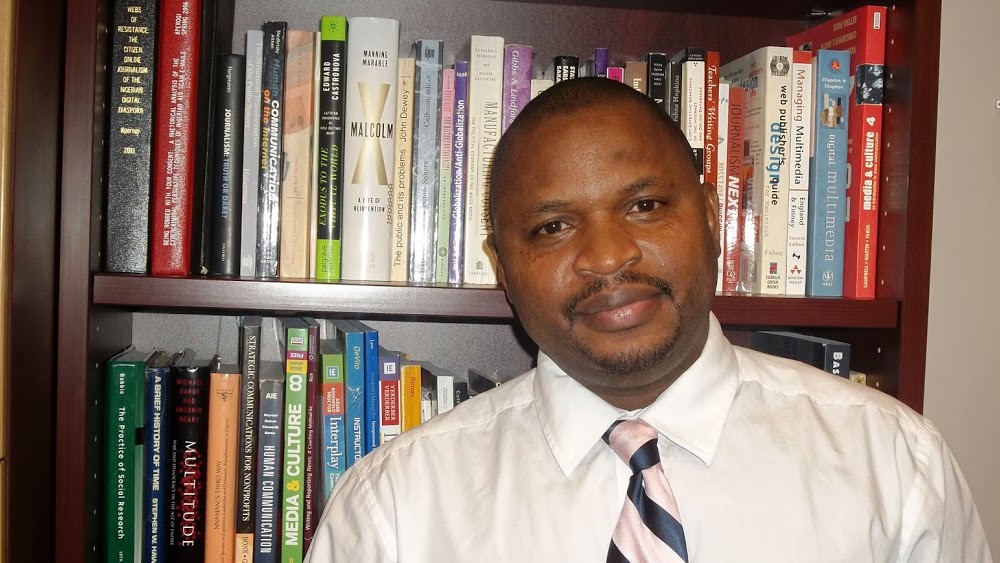[dropcap]N[/dropcap]igeria desperately needs a rebirth—beginning with an appellative rebirth. That’s why I think Professor Akin Oyebode, University of Lagos professor of international law and Ekiti State delegate at the ongoing Nigerian national conference, made one of the most substantive contributions to national dialogue when he suggested that Nigeria should change its name to the United Republic of Songhai.
In an April 14, 2014 interview with SaharaTV, Professor Oyebode said people wondered “why a Yoruba person should suggest a name like Songhai, which has or bears closer affinity to northwest Nigeria.” Well, a bit of contextual information is in order here. It is true that the defunct Songhai Empire, which waxed and waned between the early 15th century and the late 16th century, was located in what is now Niger Republic (and parts of modern Mali), which makes it geographically closer to northwest Nigeria than to any other region in the country.
However, the cultural, political, and even linguistic influences of the Songhai Empire extended far beyond northwest Nigeria. It also had a lot of influences on several communities in north-central, northeastern, and southwestern Nigeria. In fact, the name “Yoruba” is Songhai Empire’s unintentional but nevertheless momentously consequential historical “gift” to what is now southwest Nigeria.
As I pointed out in my July 17, 2012 article titled “The Case Against Nigeria’s Break-up (III),” “according to historical sources, it was the sixteenth-century Songhai scholar by the name of Ahmed Baba al Massufi who first used the word ‘Yariba’ in a scholarly article (written in Arabic) to describe people in what is now Oyo, Osun, and parts of Kwara. Hausa-speaking people copied the name from al Massifi’s book and popularized it.”
And, as anyone who has read my March 13, 2012 article titled “The Arabic Origins of Common Yoruba Words” would know, many of the Arabic-derived vocabularies in Yoruba came to the language by way of Songhai, precisely because it was the Songhai people who introduced Islam to Yoruba land. (They were also the ones who introduced Islam to Hausa land.)
But you don’t have to be culturally, historically, or geographically affiliated with the Songhai people to support the renaming of Nigeria to the Republic of Songhai. There are at least four reasons for this.
First, there are many modern countries in West Africa that took their names from pre-colonial empires that didn’t have any affinities with them. For example, no part of modern Ghana was ever in the defunct Ghana Empire, which was located in parts of modern Mauritania and Mali. It is noteworthy that while the defunct Ghana Empire was an Islamic empire, modern Ghana is predominantly Christian.
Similarly, only the southern tip of modern Mali was part of the defunct Mali Empire, which predeceased the Songhai Empire. And no part of modern Republic of Benin was even remotely connected with the defunct Benin Empire after which it was named. Matthew Kerokou, Benin Republic’s military ruler in the 1970s (and again in the 1990s), thought it was unfair that his country was known as Dahomey, which was the name of an older empire in the southern belt of the country. So he took a neutral name from an ancient and glorious empire that happens to be in modern Nigeria.
Two, as Professor Oyebode pointed out, it was actually an Igbo man from Ohafia by the name of Dr. Kalu Ezera who first suggested, in 1960, that Nigeria’s name should be changed to the United Republic of Songhai. But the reactionary colonial lackeys who formed the core of Nigeria’s early “nationalists” ignored him. So the campaign to change Nigeria’s name to Songhai is neither new nor informed by ethnic or religious loyalties. A well-regarded personage once told me that the Buhari/Idiagbon military regime had perfected plans to change Nigeria’s name to “Republic of Songhai” before it was overthrown.
Third, the name “Nigeria” is a product of outmoded, nineteenth-century European obsession with race and skin color. Nigeria is derived from “niger,” the Latin word for black, which has assumed deeply pejorative connotations in English over the years. River Niger, the longest and most important river in Nigeria from which our country’s name is derived, is named after our skin color. Why should we in the 21st century still be stuck with a name that has fallen into disrepute and that, in the first place, invidiously and needlessly calls attention to our skin color?
As Professor Oyebode said, if we must name our country after the longest river in our land, why not adopt one or all of its local names? Yoruba people call Rive Niger “Oya,” the Baatonu people call it “Kora,” Hausa people call it “Kwara,” Igbo people call it “Orimiri,” etc. I’m aware, though, that adopting any local name for Nigeria will ignite needless ethnic battles. So let’s stick with Songhai Republic.
Fourth, Nigeria is one of only a few post-colonial African states that still cling to their colonial names. At the same time, Songhai is the only defunct West African empire of its stature and importance that hasn’t been named after a modern state. So there is a confluence of needs here: a superannuated, colonial, racialist name in search of a glorious, authentic, and historic African polity whose name is still unclaimed in modern times.
Of course, I am aware that changing our name will do little or nothing to change the dire conditions that plague us, but it’s a worthy undertaking nonetheless.
Postscript
Full disclosure: my mother is descended from Songhai (Dendi) Islamic scholars who left their ancestral land for what is now the Borgou Province in northern Benin Republic in the 16th century. I have written about this in my August 7, 2009 article titled “In Search of My Maternal Roots in Parakou, Benin Republic.” But my support for the advocacy to change Nigeria’s name to “Republic of Songhai” isn’t informed by this fact.
Farooq Kperogi, Ph.D. is assistant professor of Journalism and Citizen Media at Kennesaw State University, Georgia, USA. He owns a blog, Notes From Atlanta where this article was first published, and tweets from @farooqkperogi.
The opinions expressed in this article are solely those of the author.








